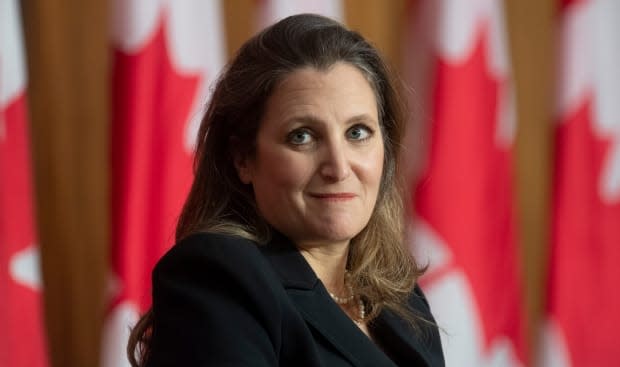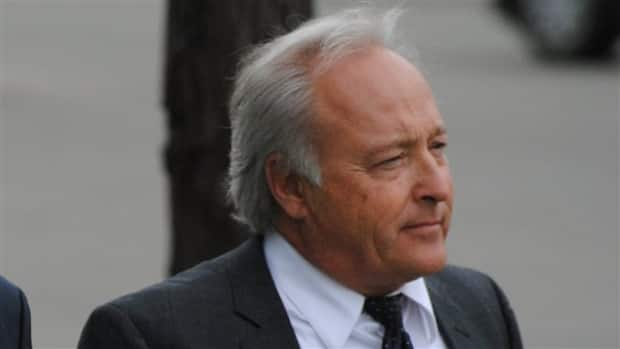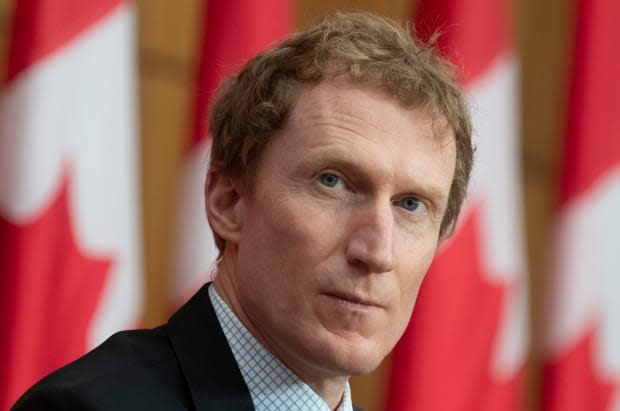5 things in the Trudeau government's budget that have nothing to do with spending

Changes to Canada's elections act. New rules for judges' pensions. Retroactive authorization for First Nations to postpone elections during the pandemic. New powers for the immigration minister to issue instructions on express entry for permanent resident applicants.
None of them have much, if anything, to do with government spending or the economy. However, they are among several non-budgetary measures included in the 739-page budget tabled by Finance Minister Chrystia Freeland in the House of Commons Monday.
Officials say some of the measures outlined in the budget may be included in the upcoming budget implementation bill. Others, however, may be presented to Parliament as part of separate bills.
Prime Minister Justin Trudeau's government is not the first to quietly include non-monetary measures in a budget or a budget implementation bill instead of separate, standalone legislation. It was a hallmark of former Conservative prime minister Stephen Harper's government.
For example, in 2015, the Harper government included a provision in a budget bill that retroactively rewrote Canada's access to information law to protect the RCMP from being charged by the Information Commissioner for destroying gun registry documents before legislation to scrap the gun registry was adopted by Parliament.
The Liberal Party's 2015 campaign platform sharply criticized the practice, saying Harper's government had "used omnibus bills to prevent Parliament from properly reviewing and debating" proposals.
"We will change the House of Commons standing orders to bring an end to this undemocratic practice," Trudeau's Liberals vowed.
WATCH | Chrystia Freeland delivers federal budget
Conservative Ethics Critic Michael Barrett said this budget wouldn't be the only time the Trudeau government has included non-monetary measures in a budget.
"The Trudeau government has been known to use the budget to benefit Liberal insiders, like the time they buried a deferred prosecution agreement for SNC Lavalin in Budget 2018," he wrote. "Given the Liberal's past actions we will be reviewing the legislation very closely."
Here are some of the non-budgetary measures contained in the Trudeau government's omnibus budget.
Elections Act
On Feb. 19, Ontario Superior Court Justice Breese Davies struck down a key section of Canada's elections law designed to curb misinformation during elections, saying it was an unjustifiable restriction on the right of Canadians to free speech.
In March, the government decided not to appeal the ruling and said it would study how to ensure that deliberate false statements are covered under the election law. The government included plans to act in its budget on Monday.
"Budget 2021 proposes to introduce amendments to the Canada Elections Act to specify that making or publishing a false statement in relation to a candidate, prospective candidate, or party leader would be an offence only if the person or entity knows that the statement is false."
Judges
In February, Quebec Superior Court Justice Michel Girouard resigned shortly before Justice Minister David Lametti was poised to ask Parliament to remove him from office. But while Girouard's resignation put an end to an eight-year legal battle to keep his job that the Canadian Judicial Council estimates cost Canadian taxpayers millions of dollars, it left Girouard with a lucrative federal pension.
"Throughout this entire period, Michel Girouard has continued to receive his full salary despite not sitting, and he will now receive a pension for life, all at the expense of Canadian taxpayers," Justice Richard Wagner, chairperson of the council, wrote in February as he called for reforms to the process that reviews the conduct of judges.
Girouard, named to the bench in 2010, has been collecting a $329,900 annual salary and building up pension credits but hasn't heard any cases since January 2013, following an allegation that he bought illegal drugs from a client.

While that allegation wasn't proven, in February 2018 the Canadian Judicial Council found that Girouard "attempted to mislead and conceal the truth during the process of review of allegations against him," and recommended that he be removed from the bench.
Girouard qualified for early retirement and pension on Sept. 30, 2020 as he was fighting his removal.
However, a passage in Monday's budget could stop that from happening again.
"Budget 2021 proposes to amend the Judges Act to freeze a judge's pension entitlements, as of the date the Canadian Judicial Council recommends a judge's removal from office."
Justice department officials say the change is unlikely to apply retroactively to Girouard.
Charities and terrorists
The government is proposing measures to crack down on charities it believes are affiliated with terrorist organizations.
Currently, when a group is listed as a terrorist entity, its charitable status can be revoked but only after an administrative process. If that process recommends its charitable status be revoked, the group can appeal that decision in court.
The budget, however, proposes to give the minister of national revenue the power to immediately revoke the registration of a charity. The provision does not mention any right of appeal.
The government is also proposing to add someone who has been a member of a terrorist entity to the category of "ineligible individuals" involved with a charity. If a charity has an "ineligible individual" on its board or among its officers the Minister of National Revenue can refuse or revoke the charity's registration or suspend its right to issue official donation receipts.
The budget also proposes allowing the minister to suspend a charity's authority to issue official receipts for a year or revoke its registration if it makes a false statement to maintain its registration as a charity.
All of the measures would take effect upon royal assent of the bill.
First Nations elections
When the COVID-19 pandemic hit in spring 2020, the Trudeau government adopted regulations to allow First Nations to cancel or postpone elections that were due to take place during the pandemic. Since then, 116 First Nations have used the First Nations Election Cancellation and Postponement Regulations to postpone elections.
Earlier this month, Federal Court Justice Sébastien Grammond sided with a challenge launched by a member of the Acho Dene Koe First Nation in the Northwest Territories and struck down a section of the regulations that dealt with elections held according to custom.
Grammond ruled that the federal government had overstepped its powers under the Indian Act and the Acho Dene Koe First Nation did not have the power to extend its own term of office.
Indigenous Services Minister Marc Miller has said the regulations are "a key tool" in managing COVID-19 risks in First Nations and the government will appeal the ruling.

Meanwhile, Monday's budget includes plans to retroactively validate the postponement of elections over the past year.
"The government proposes to introduce legislation that would ensure that the First Nations Election Cancellation and Postponement Regulations (Prevention of Diseases) are deemed to have been validly made since April 7, 2020."
Immigration
According to the budget, Immigration Minister Marco Mendicino is about to get new powers to choose who gets faster track entry into Canada.
"The Government of Canada intends to propose amendments to the Immigration and Refugee Protection Act to provide the Minister of Immigration, Refugees and Citizenship Canada with authority to use ministerial instructions to help select those candidates who best meet Canada's labour market needs from among the growing pool of candidates who wish to become permanent residents through the Express Entry System."

It comes only a few days after the government announced a plan to help health-care professionals and essential workers already in Canada get permanent status in Canada.
Elizabeth Thompson can be reached at elizabeth.thompson@cbc.ca

